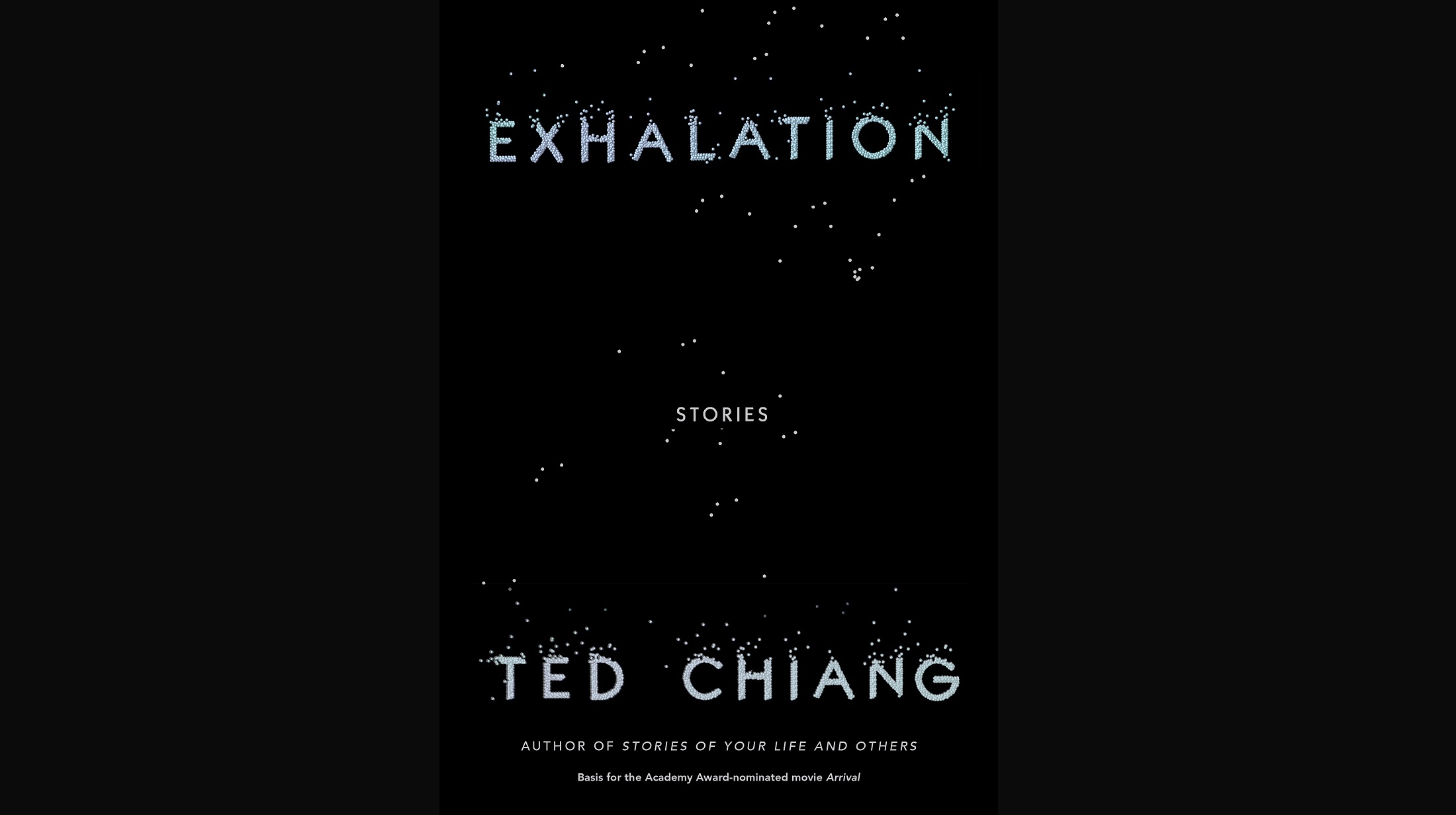'Exhalation' Collection Will Expand Your Mind: A Q&A with Short Story Author Ted Chiang

Ted Chiang's latest collection of short stories, "Exhalation" (Knopf 2019), out now, invites the mind to stretch and bend around thorny questions of physics, consciousness, free will and storytelling.
The collection draws from older stories he's written as well as a few never-before-released ones, and is a must-read book for those who enjoyed his first collection, "Stories of Your Life and Others" (Tor Books 2002) — one story of which inspired the recent film blockbuster "Arrival" (2016) — or for anyone seeking mind-expanding stories unlike any other.
Space.com caught up with Chiang by email to hear about the thought process behind his writing, his scientific inspirations and the most intriguing questions in physics.
Related: Talking in Circles: Creating the Alien Language of 'Arrival'

Space.com: Which of these stories were you most excited to bring to print — or bring to print again?
Ted Chiang: There are two stories appearing in the collection for the first time, and I'm excited about that. In terms of reprints, I've been told by some readers that they're most excited about the renewed availability of "The Merchant and the Alchemist's Gate," because copies of the limited edition of that story usually go for over $100 online. I also have a friend who's a professor and is looking forward to having "The Lifecycle of Software Objects" back in print so she can put it on her syllabus.
Space.com: What elements of astronomy and space science have inspired you most in your stories?
Breaking space news, the latest updates on rocket launches, skywatching events and more!
Chiang: My story "The Merchant and the Alchemist's Gate" was inspired by Kip Thorne's work on applying time dilation to wormholes, which I found absolutely fascinating. Another new story in the collection, "Omphalos," was inspired in part by thinking about the Copernican principle of cosmology.
Space.com: Can you talk about seeing "Story of Your Life," from your previous collection, brought to screen as the alien first-contact story "Arrival"? What did you think?
Chiang: I was very happy with "Arrival"; I think it works well both as a film on its own terms, and as an adaptation of my story. While it differs from my story in significant ways, it captures the emotional core of the story, which is all I wanted from an adaptation. And we all know how often adaptations of written science fiction go badly wrong, so it's almost literally a miracle that "Arrival" turned out so well. It's true that the film is missing a lot of the physics that's in the story; they actually filmed a couple scenes of Jeremy Renner explaining physics, but decided not to use them. As much as I would have loved to see them included, I think that was the right decision; the film already asks a lot of its viewers, and trying to retain the physics would have been asking too much.
Space.com: Which story from this collection do you think would work best in a visual medium, and would it be another feature movie? TV series? Short film?
Chiang: I really have no idea of what would make a good movie or TV series; I — along with many others — would have said "Story of Your Life" was unfilmable, but it turned out it wasn't. I think adapting a work for the screen requires a very different mindset than writing fiction; if I were to imagine an adaptation, I would tend toward being very literal, when they're often better being looser. That said, a friend of mine once said that he'd love to see "Exhalation" done as an animated short film, and that sounds like a very interesting idea to me.
Space.com: You've talked about the inspiration for that story being a chapter on thermodynamics in "The Emperor's New Mind" by Roger Penrose. Can you talk about your thought process in translating that kind of concept into a story?
Chiang: The universe of "Exhalation" is one in which all the principles of thermodynamics as we know them apply, but certain aspects of them are more readily visible than in our universe. Explanations of physics for a general audience are often accompanied by diagrams that simplify things in order to make one specific concept easier to understand; "Exhalation" can be thought of as one of those diagrams expanded into a work of fiction.
Space.com: Are there any other concepts in physics that you think are due for a fictional exploration?
Chiang: The many-worlds interpretation of quantum mechanics is something I explore in one of the new stories in the collection, "Anxiety is the Dizziness of Freedom." Of course that concept has been the basis for a lot of science fiction already; one of the older ones is Larry Niven's "All the Myriad Ways," which makes an argument about the moral implications of the many-worlds interpretation. My story makes the opposite argument, although I'm sure people will continue debating the matter for a very long time.
Space.com: Which story was the most challenging for you to write?
Chiang: "The Lifecycle of Software Objects" was the most challenging for me. I usually have a reasonable idea of how long a story is going to be when I start, and I estimated that this story would be about 20k words long. But when I'd written 15k words, I realized I was nowhere near finished. The same was true when I reached 20k words. By the time I had written 25k words, I couldn't understand how I wasn't finished yet. I think it's because the story spans a period of almost 20 years, when most of my stories take place over much shorter time spans. I was trying to convey the entire process of raising a child to adulthood, which I guess is something that could occupy an entire novel; I should have known I would need more wordage.
Space.com: If you could get a definitive answer to one mystery of space or physics, what would it be?
Chiang: I was going to say that I'd like to know how quantum mechanics and general relativity can be reconciled — I remember when I was in college I heard an explanation of how, taken together, QM and GR implied that microscopic black holes could be created alarmingly easily — but I realize that I probably wouldn't be able to understand the answer to that; I don't have the necessary math background. So instead I'll say that I'd like to get an answer to the Fermi paradox. I'm not enormously troubled by the fact that we haven't detected evidence of extraterrestrial intelligence — I think there are many possible explanations — but it would definitely be interesting to learn which explanation is actually correct.
You can buy "Exhalation" on Amazon.com.
- 'Arrival', AI and Alien Math: Q&A with Stephen Wolfram
- A Science Fiction Reading List
- Where Are All the Aliens? 'Out There' Book Excerpt
Email Sarah Lewin at slewin@space.com or follow her @SarahExplains. Follow us on Twitter @Spacedotcom and on Facebook.

Sarah Lewin started writing for Space.com in June of 2015 as a Staff Writer and became Associate Editor in 2019 . Her work has been featured by Scientific American, IEEE Spectrum, Quanta Magazine, Wired, The Scientist, Science Friday and WGBH's Inside NOVA. Sarah has an MA from NYU's Science, Health and Environmental Reporting Program and an AB in mathematics from Brown University. When not writing, reading or thinking about space, Sarah enjoys musical theatre and mathematical papercraft. She is currently Assistant News Editor at Scientific American. You can follow her on Twitter @SarahExplains.
